Argentina is a land of extremes, with sub-tropic rain forests in the north and a sub-antarctic climate at the south end.
It is the eighth-largest country in the world, but a third of the population lives in Buenos Aires, one of the world’s largest cities.
There is tremendous variation in the land, people, cultures, and even weather.
The culture is unique as a result, with many influences.
While there may be issues, there is something that will appeal to everyone in Argentina.
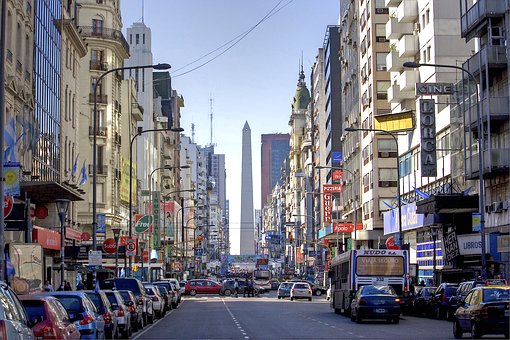
Contents
Pros of Living in Argentina
1. Cultural diversity
There is a strong Italian and German influence, and many other countries as well.
Indigenous people also make up a culture of their own.
It is an interesting melting pot of many cultures, and there is an almost endless amount of culture to be explored and experienced.
There is always something going on and something to experience whether you are in Buenos Aires or a small town in the countryside.
2. The Food
Argentinians love their meat, and they are the world’s largest beef producers.
Some meals might be only meat, but that is just the beginning.
The Italian influence can be seen all over the country.
You can get fresh pasta by the bag in shops.
Fresh fruit and vegetables, as well as meat, are all pretty cheap in the markets.
Wine is also exceptional in Argentina.
3. Healthcare
First, it is free, even if you are a tourist and get injured or sick.
There is also private insurance available which gets you to the front of the line and taken care of faster.
The health plan, or private coverage, is inexpensive and many people moving there take that option.
Medicine, as well as healthcare, is much cheaper than in the United States and is of the same quality.
Dental and vision care are included.
There are also more psychologists per capita than anywhere in the world.
4. Education
School is free through college at state universities.
This is for both citizens and non-citizens.
If you are in Argentina, college is free no matter where your citizenship is.
The graduate school charges a fee.
There are also private universities that are not much cheaper than in the United States.
The education system for children is rated as the best in South America and compares well to education in the United States or Europe.
5. Friendly people
Some say Argentinians are arrogant, and they do have a lot of confidence, but they are also very accepting and friendly.
Ask someone for directions and you may get into a 30-minute conversation and an invitation to lunch.
Since college is free, most people are well educated, and that helps too.
Just do not expect anyone to be on time, but that is part of the open-friendly attitude.
People like getting outside and it is fairly easy to develop a social life.
6. Low cost of living
This can change with fluctuations in the economy, but in general, everything is cheap in Argentina.
The one exception is electronics, but everything else costs less.
Transportation by bus or train is very cheap, and it can be used to travel throughout the country.
Food is cheap.
Rental units are also pretty inexpensive.
A large city like Buenos Aires is more expensive, but the more rural areas offer very low living expenses.
7. Natural wonders
In the south, there is Patagonia and a national glacier national park.
It is the southern version of Alaska, with some of the greatest hiking in the world.
The Andes mountains are part of that.
There are lakes at very high altitudes.
In the north, there are rainforests and jungles to explore.
In between, there are vast farmlands and prairies.
With a third of the population in Buenos Aires, there are lots of wide-open spaces.
8. Easy access
Anyone from North or South America, or Europe, can easily get a 90-day visitor visa.
A lot of people get those and end up staying forever.
The country welcomes foreigners with open arms and encourages people to stay as long as they like.
It is easy to get that 90-day visa extended.
9. Safety
There is some petty crime, and some violent crime in larger cities, but for the most part, it is very safe.
There is a big police presence in the cities, and that helps cut down on crime.
Many areas of Buenos Aires are very safe and crime is rare in tourist areas.
Cons of Living in Argentina
1. Inefficient
Maybe it is because of the laid-back attitude, but it takes a long time to do anything, and it is hard to do.
You may have to wait in line for hours to do something you could get in 20 minutes in the United States.
No one is going to be sorry or in a hurry to help you either.
It is a struggle for type A people, but if you can relax it gets more tolerable.
Do not expect this to change though, because if you do you will live in frustration.
It is how they do things and you have to adapt if you are going to live there happily.
2. Banks and ATMs
Getting your cash can be a hassle.
ATMs charge big fees and you can only get a small amount.
The exchange rate at ATMs is also not the best.
Banks are a little better, but there are a lot of inefficiencies there as well.
It is best to go through the Western Union to exchange currency.
3. Unstable economy
The economy can shift quickly, and your dollars may rise or fall in value very quickly.
The cost of living is low, but that can change fast.
Inflation can reach 30 percent at times.
You could find everything getting expensive suddenly and then go back to being cheap just as fast.
If you have dollars or Euros you should be OK.
Jobs are hard to get, and the pay in Argentinian currency is low.
Check the economy before you move to Argentina.
4. Imports and electronics
Electronics are very expensive and hard to get, because of fees associated with imports.
Taxes are pretty high, and that is part of the problem.
The fees added on imports are designed to promote local production, but the result is often a lack of products and they are expensive too as a result.
If your friends try to send you things, there will be taxes on the items, as well as on the shipping.
5. Distance
Argentina is huge but sort of isolated as well.
It is a 10-hour flight to Miami or a 12-hour flight to Europe.
It may be difficult to get back to the states if you need to quickly.
The country is also big.
From Buenos Aires, it is a three-hour flight to Patagonia or a 3 – hour flight to Mendoza.
If you like where you are and you are comfortable, this may not be an issue.
But you need to be aware of the distances because if you get homesick, it may be hard to fix.
6. Taxes are high
There are a lot of services provided by the government, things like healthcare, but those things come at a cost.
There is a progressive income tax that goes from five to 35 percent depending on your income.
Self-employed people have a different structure and have to pay a gross income tax.
This could be an additional four percent of the regular income tax.
You do have to pay income tax only on what you earn there.
7. Everyone is late
It could be part of the inefficiency or part of the laid-back culture, but if you are a punctual person it may drive you crazy.
Expect people to be half an hour late, and for them to not think it is unusual.
Service is slow in restaurants.
If a repairman is supposed to show up at noon, he may show up before the end of the day if you are lucky.
The culture likes it this way, and it is not going to change.
It is something you have to get used to.
8. Noisy neighbors
Especially in Buenos Aires, people get up late and stay up late.
People often eat their evening meal at about 9 p.m.
People will be up and out on the streets at all hours.
It is generally safe, but there will be a lot of noise to contend with.
9. Politics
The economy and the government are rather unstable.
At one time, Argentina had one of the strongest economies in the world, but it has struggled since the 1940s, to stay near the top.
Things can change quickly, and rules can change fast.
There are often protests in the streets.
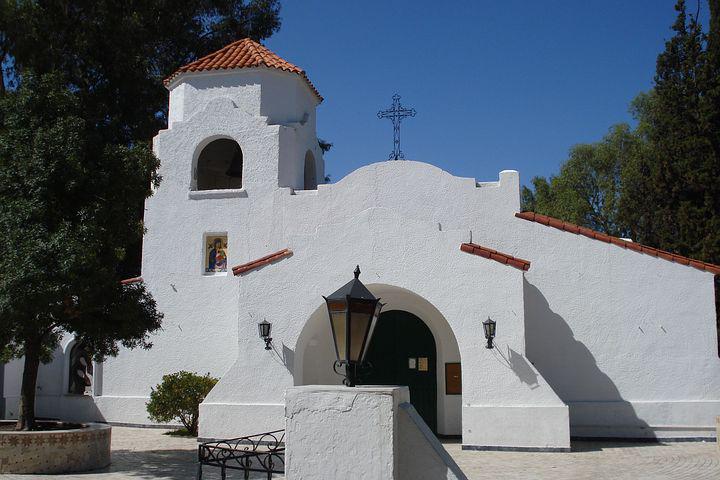
Pros and Cons of Living in Argentina – Summary Table
| Pros of Living in Argentina | Cons of Living in Argentina |
|---|---|
| 1. Cultural diversity | 1. Inefficient |
| 2. The Food | 2. Banks and ATMs |
| 3. Healthcare | 3. Unstable economy |
| 4. Education | 4. Imports and electronics |
| 5. Friendly people | 5. Distance |
| 6. Low cost of living | 6. Taxes are high |
| 7. Natural wonders | 7. Everyone is late |
| 8. Easy access | 8. Noisy neighbors |
| 9. Safety | 9. Politics |
Argentina Safety Overview
READ THE FULL REPORT: Argentina Safety Review
Safety Index:
- OVERALL RISK: LOW
- TRANSPORT & TAXIS RISK: LOW
- PICKPOCKETS RISK: MEDIUM
- NATURAL DISASTERS RISK: MEDIUM
- MUGGING RISK: MEDIUM
- TERRORISM RISK: LOW
- SCAMS RISK: MEDIUM
- WOMEN TRAVELERS RISK: MEDIUM
Frequently Asked Questions
What is the blue dollar?
The blue dollar is a term used for the black market, under the table, currency exchange.
The government limited the purchase of dollars, which led to an underground foreign exchange.
The government exchange rate was not nearly as good as the black market rate.
This comes and goes depending on current policy, but you may be better off getting your dollars traded on the black market than doing it by the government.
Why are electronics so expensive?
Electronics may cost twice what they cost in the United States or more.
This is largely due to import taxes designed to protect local production, but local production has not filled the void.
Logistics of getting electronics to the country are also a problem.
It is not only that they are more expensive, but they are also harder to find.
People in Buenos Aires go to neighboring Uruguay to buy their electronics.
How big is Argentina?
Argentina is the eighth-largest country in the world by land size.
It is 2300 miles from north to south, and about 900 miles wide at its widest point.
How do visas work in Argentina?
It is easy to get a 90-day visitor visa.
Getting a longer one can take a lot of time and effort.
Many people keep renewing that 90-day visa, but at times that is not allowed.
The political climate can have a big impact.
A long-term residency is hard to get, but it is not that hard to work the system.
Is it hard for a foreigner to start a business?
There is a need for businesses, goods, and services, but there is a lot of paperwork involved.
There are as many as 15 paperwork procedures that have to be completed.
You will likely need a lawyer to get through the maze.
Once people get through that, they seem to do well in many businesses.
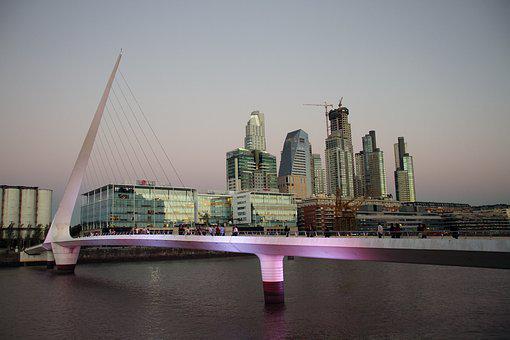

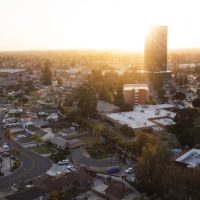


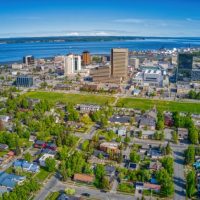






Excellent advice.
Thanks. Mentally prepared now.
Very thorough information. Thanks for putting this together.
Very good report. Mostly true. All on all is a great country to live in.
Thanks for the info, it helps to prepare me mentally. Very informative.
Great article. Very informative. Makes me want to pack up and leave for Argentina ASAP.
With all my due respect, I am Argentinian and you don’t know what you are saying. Argentina, is not a good country to live in right now. It’s getting worse and worse. Stay wherever you are for your own safety.
Number 5. I strongly disagree. I returned from Buenos Aires 1 week ago. I found the people in general not friendly, even angry. Maybe the writer knows someone there. That makes a big difference anywhere you are.
Anyway, it is on my list of countries never to return to.
No Sure where you went, But I love their culture, food, and the way they live their life.
24/7 , no worries about going long distances, nor if they are late or not, as long as they get there.
excellent service at the restaurants, and most of all extremely clean, different from other country’s that I been before in Latin American. Also , I knows , you can have a conversation about different issues, country, which they are very aware off. I will go back. Now , I know you have to be careful with
their government system, since Argentines love to go out on the street and prott4est at any time, and day.
Note, there is not a country that’s perfect, not even in USA, Which is one of the best country’s to live in the World.